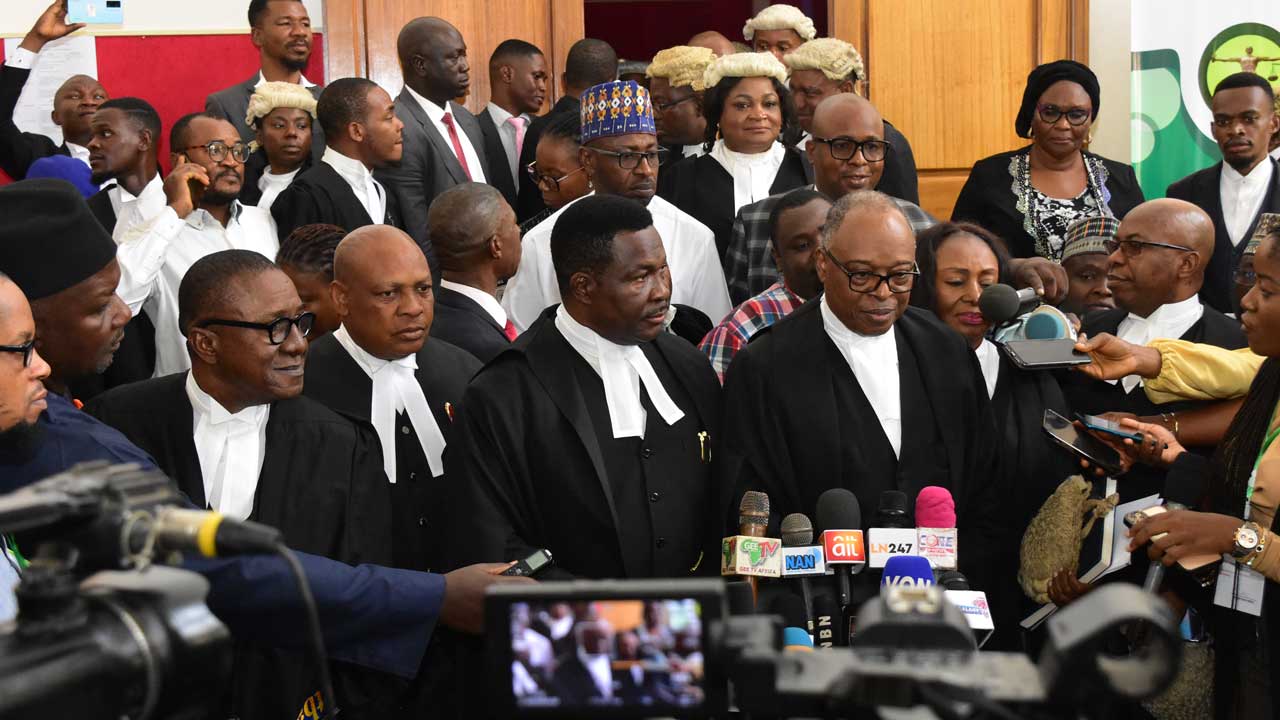
There is an ill wind blowing through the fabric of our judicial system that may affect all of us ultimately, if not arrested urgently. In one way or the other, we are all potential litigants. Democracy is accepted worldwide as the best method of leadership recruitment, as exemplified by the secret ballot system whereby the electorate has the golden opportunity of choosing those who will govern them. The 1999 Constitution prescribes a four-year tenure for all elected positions created under it.
In further deference to democratic ethos, election itself has ceased to be the only means of choosing leaders. Aggrieved persons now have the opportunity to deploy legal means to either challenge the process of leadership recruitment or indeed the outcome of the election proper. In Nigeria, this has been categorised into pre-election matters and election petitions. Thus, it is possible that the people may elect a Governor through the ballot and he may still be disqualified by the Court, as was the case with Mr. David Lyon. He was elected by the people of Bayelsa State as the Governor but his running mate in the election, who was to be sworn in with him as the Deputy Governor, was disqualified on account of discrepancies in his documents. Similarly in Kano State recently, the Governor who was declared as elected by the people was ordered to be removed by the court and the certificate of return issued to his opponent.
Under and by virtue of Section 285 (9) of 1999 Constitution, a person who has any reason to challenge the choice of any candidate for any election is at liberty to approach the court to seek any declaration. This is termed pre-election matters. In the same vein, Section 285 (1)-(4) of the Constitution creates the regime of election tribunals with the exclusive mandate to entertain and determine petitions arising from the conduct of elections and the declaration of winners. By this arrangement, courts and tribunals have become the final destination in the determination of the winner of any election. These cases are time-bound as they must be concluded within a specific period of time. This should not be an issue at all in normal circumstances where due process of law holds sway but in Nigeria, abnormal things do happen.
Very recently, the Guardian newspaper reported a very disturbing situation, in its October 18 2023 edition. According to the headline of the said report, “INEC Credibility Sinks as 94% Contested Posts Await Tribunal’, rolling out some alarming statistics to the extent that 1,209 out of 1,280 elective offices to be decided by court verdict, free, fair, credible elections held in only 71 polls, representing 5.55%, 24 out of 28 gubernatorial cases for court validation, umpire earmarked N3B to defend decisions in court, electorate blames INEC, politicians, lawyers for flawed democracy, etc. The Independent National Electoral Commission, INEC is inundated with not less than 1,000 pre-election cases arising from or connected to the 2023 elections. INEC Director, Legal Drafting and Clearance, Mrs. Oluwatoyin Babalola confirmed this in her presentation at a two-day capacity workshop for journalists in Nasarawa State last week. Substantively, over 1,200 cases are pending before various Election Tribunals for determination. The cumulative result of this is that the political class in Nigeria is very litigious, preferring to contest every electoral issue. This should ordinarily be good news for lawyers as it will keep them busy and bring more income. But this is not about lawyers as Nigeria is greater than any group of professionals. The reality is that this has caused the political terrain to become uncertain and unsteady. As it happened in Bayelsa State, it is possible to remove a Governor-elect on the eve of his swearing in.
Not long ago, Senator Muhammad Bulkachuwa shocked the nation when he revealed that he had served as courier to assist his fellow legislators to secure some judicial favour to boost their electoral fortunes. Being the husband of the immediate past President of the Court of Appeal who was directly in charge of constituting and managing all election tribunals, the understanding of many is that Senator Bulkachuwa at different times during his tenure as a Senator assisted in influencing judicial decisions one way or the other, through his marital affiliation to a judge. Another Senator, Elisha Abbo accused the current Senate President of masterminding his removal and also plotting that of many others. These statements have been modified, in the usual Nigerian fashion.
To be continued tomorrow






